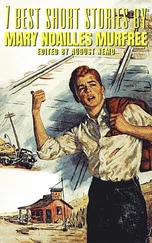Mary Gaitskill
Because They Wanted To: Stories
I would like to thank and acknowledge the following people: Laura Miller, Pat Towers, Deborah Garrison, Becky Saletan, Henry Dunow, Will Blythe, Frank Kogan, Ephrem Korngold, Karen Everett, Knight Landesman, Mieke Van Hoek, Barbara Cooper, and The Better Off Dead Poets Society.
Because They Wanted To: Stories
The most outlandish people can be the stimulus for love. . . . A most mediocre person can be the object of a love which is wild, extravagant, and beautiful as the poison lilies of the swamp. A good man may be the stimulus for a love both violent and debased, or a jabbering madman may bring about in the soul of someone a tender and simple idyll. Therefore, the value and quality of any love is determined solely by the lover himself.
It is for this reason that most of us would rather love than be loved. Almost everyone wants to be the lover. And the curt truth is that, in a deep secret way, the state of being beloved is intolerable to many.
—Carson McCullers, The Ballad of the Sad Café
Because they wanted to Tiny, Smiling Daddy
He lay in his reclining chair, barely awake enough to feel the dream moving just under his thoughts. It felt like one of those pure, beautiful dreams in which he was young again, and filled with the realization that the friends who had died, or gone away, or decided that they didn’t like him anymore, had really been there all along, loving him. A piece of the dream flickered, and he made out the lips and cheek-bones of a tender woman, smiling as she leaned toward him. The phone rang, and the sound rippled through his pliant wakefulness, into the pending dream. But his wife had turned the answering machine up too loud again, and it attacked him with a garbled, furred roar that turned into the voice of his friend Norm.
Resentful at being waked and grateful that for once somebody had called him, he got up to answer. He picked up the phone, and the answering machine screeched at him through the receiver. He cursed as he fooled with it, hating his stiff fingers. Irritably, he exchanged greetings with his friend, and then Norm, his voice oddly weighted, said, “I saw the issue of Self with Kitty in it.”
He waited for an explanation. None came, so he said, “What? Issue of Self ? What’s Self ?”
“Good grief, Stew, I thought for sure you’d of seen it. Now I feel funny.”
The dream pulsed forward and receded again. “Funny about what?”
“My daughter’s got a subscription to this magazine, Self. And they printed an article that Kitty wrote about fathers and daughters talking to each other, and she, well, she wrote about you. Laurel showed it to me.”
“My God.”
“It’s ridiculous that I’m the one to tell you. I just thought—”
“It was bad?”
“No, she didn’t say anything bad. I just didn’t understand the whole idea of it. And I wondered what you thought.”
He got off the phone and walked back into the living room, now fully awake. His daughter, Kitty, was living in South Carolina, working in a used-record store and making animal statuettes, which she sold on commission. She had never written anything that he knew of, yet she’d apparently published an article in a national magazine about him. He lifted his arms and put them on the windowsill; the air from the open window cooled his underarms. Outside, the Starlings’ tiny dog marched officiously up and down the pavement, looking for someone to bark at. Maybe she had written an article about how wonderful he was, and she was too shy to show him right away. This was doubtful. Kitty was quiet, but she wasn’t shy. She was untactful and she could be aggressive. Uncertainty only made her doubly aggressive.
He turned the edge of one nostril over with his thumb and nervously stroked his nose hairs with one finger. He knew it was a nasty habit, but it soothed him. When Kitty was a little girl he would do it to make her laugh. “Well,” he’d say, “do you think it’s time we played with the hairs in our nose?” And she would giggle, holding her hands against her face, eyes sparkling over her knuckles.
Then she was fourteen, and as scornful and rejecting as any girl he had ever thrown a spitball at when he was that age. They didn’t get along so well anymore. Once, they were sitting in the rec room watching TV, he on the couch, she on the footstool. There was a Charlie Chan movie on, but he was mostly watching her back and her long, thick brown hair, which she had just washed and was brushing. She dropped her head forward from the neck to let the hair fall between her spread legs and began slowly stroking it with a pink nylon brush.
“Say, don’t you think it’s time we played with the hairs in our nose?”
No reaction from bent back and hair.
“Who wants to play with the hairs in their nose?”
Nothing.
“Hairs in the nose, hairs in the nose,” he sang.
She bolted violently up from the stool. “You are so gross you disgust me!” She stormed from the room, shoulders in a tailored jacket of indignation.
Sometimes he said it just to see her exasperation, to feel the adorable, futile outrage of her violated girl delicacy.
He wished that his wife would come home with the car, so that he could drive to the store and buy a copy of Self. His car was being repaired, and he could not walk to the little cluster of stores and parking lots that constituted “town” in this heat. It would take a good twenty minutes, and he would be completely worn out when he got there. He would find the magazine and stand there in the drugstore and read it, and if it was something bad, he might not have the strength to walk back.
He went into the kitchen, opened a beer, and brought it into the living room. His wife had been gone for over an hour, and God knew how much longer she would be. She could spend literally all day driving around the county, doing nothing but buying a jar of honey or a bag of apples. Of course, he could call Kitty, but he’d probably just get her answering machine, and besides, he didn’t want to talk to her before he understood the situation. He felt helplessness move through his body the way a swimmer feels a large sea creature pass beneath him. How could she have done this to him? She knew how he dreaded exposure of any kind, she knew the way he guarded himself against strangers, the way he carefully drew all the curtains when twilight approached so that no one could see them walking through the house. She knew how ashamed he had been when, at sixteen, she announced that she was lesbian.
The Starling dog was now across the street, yapping at the heels of a bow-legged old lady in a blue dress who was trying to walk down the sidewalk. “Dammit,” he said. He left the window and got the afternoon opera station on the radio. They were in the final act of La Bohème.
He did not remember precisely when it had happened, but Kitty, his beautiful, happy little girl, turned into a glum, weird teenager that other kids picked on. She got skinny and ugly. Her blue eyes, which had been so sensitive and bright, turned filmy, as if the real Kitty had retreated so far from the surface that her eyes existed to shield rather than reflect her. It was as if she deliberately held her beauty away from them, only showing glimpses of it during unavoidable lapses, like the time she sat before the TV, daydreaming and lazily brushing her hair. At moments like this, her dormant charm broke his heart. It also annoyed him. What did she have to retreat from? They had both loved her. When she was little and she couldn’t sleep at night, Marsha would sit with her in bed for hours. She praised her stories and her drawings as if she were a genius. When Kitty was seven, she and her mother had special times, during which they went off together and talked about whatever Kitty wanted to talk about.
Читать дальше












